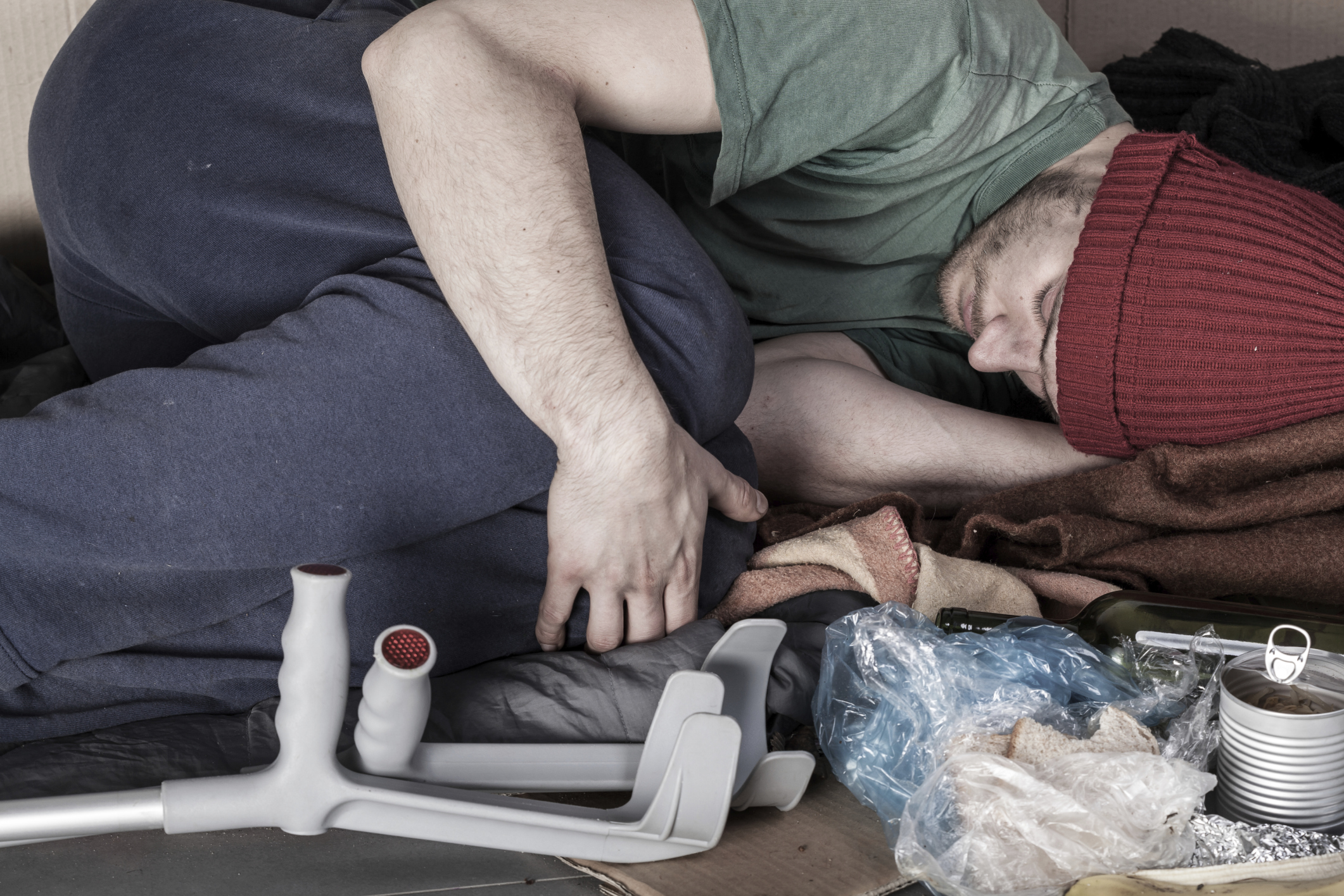Drowning in debt
Young people may once have enjoyed a certain level of financial freedom before starting families, but now the so-called carefree youth is a thing of the past as generation austerity start their working lives already saddled with debt.
And the problem may be worse than many have imagined.
A new report published this week shows that nearly 40 per cent of 18- to 24- year olds have a credit card, an overdraft or other form of borrowing not including a mortgage or student loans, and on average they owe nearly ÂŁ3,000.
One in eight young people are in debt to family or friends, with the average total of this debt type running up to more than £4,500. These debt levels don’t take into account the tens of thousands young people owe to pay for their education – the average student loan balance is £25,505.
When student loans are included, the number of 18- to 24- year olds who are in debt climbs to nearly 70 per cent.
Extreme debt
More than half of young people say that they regularly worry about money, with a third saying that they consider their debts a â€heavy burden’ and one in five saying they sometimes cannot sleep at night because of their money troubles.
Most worryingly of all, nearly 40 per cent do not have a plan in place to repay what they owe.
But mounting levels of debt are by no means confined only to the young – new research from the TUC points to the fact that 3.2m households are in what’s called â€problem debt’, in which they are paying more than a quarter of their earnings on debt, not including mortgages. And an additional 1.6m are in â€extreme debt’ in which more than two-fifths of their household income goes to paying off debts.
It’s been known that a major underlying cause of the financial crisis, the TUC notes, was private indebtedness and while some of this debt dipped in the years immediately following the crisis, it’s now back on the rise.
Total unsecured debt for UK households, which includes credit cards, payday loans, and student loans but not mortgages, rose by £48bn between 2012 and 2015 to reach £353bn, the report highlighted. Unsecured debt previously peaked at £364bn in 2008 and fell in the recession. The TUC notes that the increase since 2012 is “in part due to the major extension of student loans.”
Consumer credit, which is household borrowing excluding both student loans and mortgages, peaked in 2008 at ÂŁ230bn; it dropped back to ÂŁ184bn in 2012, but had risen again to ÂŁ212 by the end of 2015.
The Bank of England figures now show consumer credit growing at an annual rate of 10 per cent, which, the report notes, is the highest rate for over ten years.
Struggling
Some may blame growing levels of consumer debt on irresponsible spending and too many people â€living beyond one’s means’. But the TUC highlights why, exactly, people are taking on such high debts now.
“Households borrow either to spread their spending over a longer period, or when their everyday costs cannot be covered by their income,” the TUC noted.  “With households experiencing an unprecedented decline in real earnings, the obvious concern is that more households are finding themselves unable to cover their living costs without taking on debt.”
This was sentiment was reflected in a recent YouGov poll commissioned by Equifax which found that the number one reason people borrow money from family or friends is to cover the cost of food.
It’s the latest sign that food poverty is on the rise – another also came this week when research from the University of Southampton, London School of Hygiene and Tropical Medicine, University College London and East Surrey Hospital found that an astonishing 1 in 25 people living in England are struggling to feed themselves, with families in Liverpool, Hull and Middlesborough being in greatest need.
High wages plan
TUC general secretary Frances O’Grady argued that the exploding levels of consumer debt are unsustainable and reflect a deeper problem that the government is perfectly capable of tackling.
“Families can’t continue relying on credit cards and loans to get by,” she said. “But with the average weekly wage still worth £40 less than before the 2008 crash, lots of families have little choice.
“Higher wages must be at the heart of the government’s economic plan. We need a return to proper year-on-year pay rises, and a higher national minimum wage.
“And we need public investment in major infrastructure projects to create more well-paid jobs and build a stronger economy,” O’Grady added.
“The government must also do more to help low-income families struggling with problem debt in getting access to debt restructuring and insolvency support.”
Will to act
Unite assistant general secretary Steve Turner agreed.
“Young people are facing a precarious future in a nation that’s drowning in household debt,” he said. “And they’re taking the hardest hit largely because they’ve come of age in an era that’s seen a decade of vicious, ideological and unnecessary government austerity, cuts to services, growing exploitation, insecurity and low pay at work, a deliberately created housing crisis and the introduction of crippling student fees to access a university education.
“And to add insult to injury, the government now deems those under 25 unworthy of the National Living Wage, with those under 21 paid less still,” Turner added. “Now it seems in order to live in even the most basic way in the UK – to simply feed, clothe and house yourself – you have no other option but to add still more to a growing burden of personal debt by borrowing ever increasing amounts of money.”
“But it doesn’t have to be this way,” he went on to say. “Alongside a commitment to major public investment, state support for full employment in decent, secure and rewarding work and an industrial strategy which rebuilds our manufacturing base and reboots an economy that’s stagnating, the government can attack the central cause of the problem that’s causing household debts to spiral out of control — the cost of housing.”
“This entails bringing down housing costs by embarking on a mass council housebuilding programme and introducing rent controls alongside measurers to ensure the regulation of private landlords, the provision of safe housing stock and long term tenant security.
“It also means introducing a true ÂŁ10 an hour Living Wage across that board — a wage that doesn’t discriminate on the basis of your age — the provision of free university education and the creation of decent, secure, sustainable jobs in a diverse and growing economy.
“We can do this if government has the will to act — these are political choices and we must choose to support, nurture and offer real hope and opportunity to our young people. No one should have to borrow money to meet such basic needs as food and shelter in the world’s fifth richest economy.”
“We must acknowledge that out-of-control debt is only a symptom of a much more profound illness. If we don’t treat the cause, we will never find the cure.”
 Like
Like Follow
Follow


